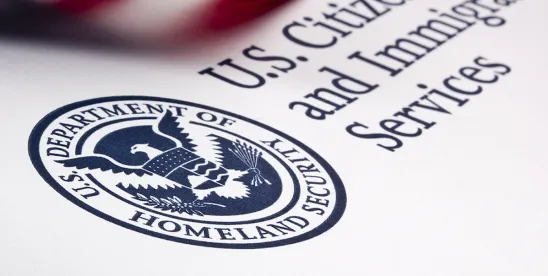Politics
U.S. Immigration Overhaul: New Fees Impact Asylum Seekers

On July 4, 2025, President Donald Trump enacted H.R.1, known as the One Big Beautiful Bill Act. This significant reform of the U.S. immigration system introduces a range of new fees and increases existing ones across nearly all immigration-related categories. Proponents view this legislation as a necessary modernization of border policy, while critics argue it imposes financial burdens on low-income immigrants and asylum seekers.
Overview of New Fees
The new legislation establishes various fees that will affect many individuals seeking immigration relief. Notably, the asylum application fee has been set at $1,000, a departure from the previous no-cost structure for new filings. Additionally, applicants with pending asylum cases will face a recurring fee of $100 annually until their cases are adjudicated.
For those seeking work authorization, the fee for Form I-765 for asylees has risen to $550, up from approximately $410. Furthermore, the cost for filing appeals or motions in immigration court has jumped to $900, a substantial increase from the previous fee of under $120.
The legislation also introduces a $1,000 fee for humanitarian parole entry, aimed at individuals seeking urgent entry. Applications for Temporary Protected Status (TPS) will now incur a fee of $500, while the adjustment of status fee for obtaining a green card has increased to $1,500, up from around $1,225 when bundled with biometrics and employment authorization documents.
Additional fees include a new $250 Visa Integrity Fee across all categories, an $30 I-94 Arrival/Departure Fee, and a non-waivable penalty of $5,000 for immigration violations. A 1% tax will also be applied to outbound remittances sent through non-bank agencies.
Impacts on Vulnerable Populations
These fee increases are designed to make the U.S. Citizenship and Immigration Services (USCIS) financially self-sufficient and lessen the burden on taxpayers. However, they also raise ethical concerns about access to immigration relief for low-income individuals and families. Critics argue that the new fees disproportionately impact marginalized communities, particularly Black, Brown, and immigrants from the Global South.
Previously exempt from fees, asylum seekers will now be subjected to thousands in recurring expenses, which many argue violates international humanitarian principles. Mixed-status families could also find themselves affected, as U.S. citizen children may face challenges if their parents cannot afford necessary status adjustments. Humanitarian applicants, including those under TPS and Deferred Action for Childhood Arrivals (DACA), will encounter new financial hurdles that could impede their access to protection.
The projected revenue from these fees is estimated at $1.2 billion over ten years, a modest sum compared to the bill’s total enforcement budget of $170 billion. This raises broader questions about the appropriateness of linking humanitarian relief and legal protections to one’s financial capacity.
As these changes take effect, legal service providers, advocacy organizations, and families affected are preparing for the new challenges that lie ahead. The implementation of H.R.1 may significantly reshape the American immigration landscape, but many argue it does so at an unjust cost to vulnerable populations.
-

 Lifestyle4 months ago
Lifestyle4 months agoLibraries Challenge Rising E-Book Costs Amid Growing Demand
-

 Sports3 months ago
Sports3 months agoTyreek Hill Responds to Tua Tagovailoa’s Comments on Team Dynamics
-

 Sports3 months ago
Sports3 months agoLiverpool Secures Agreement to Sign Young Striker Will Wright
-

 Lifestyle3 months ago
Lifestyle3 months agoSave Your Split Tomatoes: Expert Tips for Gardeners
-

 Lifestyle3 months ago
Lifestyle3 months agoPrincess Beatrice’s Daughter Athena Joins Siblings at London Parade
-

 World3 months ago
World3 months agoWinter Storms Lash New South Wales with Snow, Flood Risks
-

 Science4 months ago
Science4 months agoTrump Administration Moves to Repeal Key Climate Regulation
-

 Science2 months ago
Science2 months agoSan Francisco Hosts Unique Contest to Identify “Performative Males”
-

 Business4 months ago
Business4 months agoSoFi Technologies Shares Slip 2% Following Insider Stock Sale
-

 Science4 months ago
Science4 months agoNew Tool Reveals Link Between Horse Coat Condition and Parasites
-

 Sports3 months ago
Sports3 months agoElon Musk Sculpture Travels From Utah to Yosemite National Park
-

 Science4 months ago
Science4 months agoNew Study Confirms Humans Transported Stonehenge Bluestones









